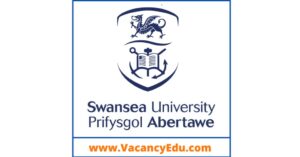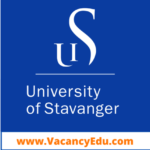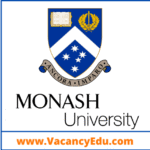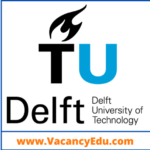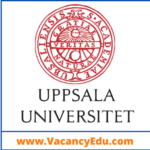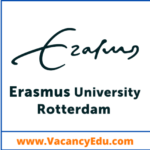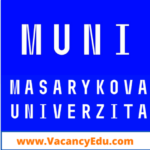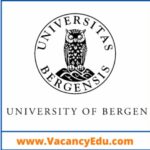Swansea University, Wales, United Kingdom invites online Application for number of Fully Funded PhD Degree at various Departments. We are providing a list of Fully Funded PhD Programs available at Swansea University, Wales, United Kingdom.
Eligible candidate may Apply as soon as possible.
(01) PhD Degree – Fully Funded
PhD position summary/title: COMPUTER SCIENCE: FULLY FUNDED EPSRC DTP PHD SCHOLARSHIP: ROBOTIC THIRD ARM FOR HARVESTING ASSISTANCE (RS625)
Swansea University, an internationally recognised academic institution with strong commitments to research and technological innovation, seeks applications for a PhD scholarship funded position to join our rapidly developing Intelligent Robotics Group at the Computer Science Department, Faculty of Science and Engineering. The development of Intelligent Robotics for real-world applications, cutting across the domains of assisted living and modern agriculture, is one of our research group’s goals. Tentacle project is a fascinating initiative that aims to develop a sophisticated robotic arm capable of assisting harvesting tasks. Through computer vision, the Tentacle arm will be able to recognize if a product (such as a fruit or a vegetable) is ready for picking and assist the picking task. The Tentacle arm and the human-picker are supposed to cooperate, with the arm assisting the picking process while the human-picker carries the arm throughout the plantation. By leveraging the unique capabilities of both robots and humans, this collaborative approach aims to optimize the harvesting process, minimize losses resulting from premature harvesting, and expedite the overall picking process. Join us and participate in this exciting project. At Swansea University you will do more than just research; at Swansea University you will positively be impacting people’s lives and the environment.
Deadline : 31 July 2024
(02) PhD Degree – Fully Funded
PhD position summary/title: MATERIALS ENGINEERING: FULLY FUNDED UK SHARED PROSPERITY FUND MSC BY RESEARCH SCHOLARSHIP: DESIGNER NANOPARTICLES FOR BIOMEDICINE AND ENERGY (RS638)
Nanostructured materials already play a vital role in society. For example, the red lines on a Covid test are nanoscale gold particles. The conventional approach to their production employs solvents and chemicals which present health hazards and environmental challenges. In this project we will exploit breakthroughs in one of two connected areas, according to the expertise of the student:
- Development of nanoscale physics-based experimental methods, where Swansea is world leader, to achieve solvent-free synthesis and scale-up of soluble, ligand-capped metal nanoparticles of size 1-100 nm.
- Conjugation of the nanoparticles at source with detector molecules chosen to recognise an infectious agent or a biomarker. This will be a completely new method to tether proteins to metal clusters for diagnostics.
Examples of the metal nanoparticles are gold for medical diagnostics and cancer treatment; iridium and platinum for clean energy (hydrogen); and silicon for photonics and solar. They will be characterised by state-of-the-art methods including XPS, SEM, TEM, dynamic light scattering, optical methods and mass spec. The production methods will combine atomistic and molecular (including protein molecule) deposition in vacuum with wafer and roll-to-roll technology, and post-processing to harvest nanoparticles on a scale beginning with grams, heading for kilograms and with the potential for tonnes – representing a revolutionary paradigm-shift in (bio) materials manufacturing at the interface between science frontiers and technological and medical applications.
Deadline : 1 August 2024
View All Fully Funded PhD Positions Click Here
(03) PhD Degree – Fully Funded
PhD position summary/title: CIVIL ENGINEERING: FULLY FUNDED EPSRC AND TWI PHD SCHOLARSHIP: AI-DRIVEN INVESTIGATION INTO PREDICTIVE NON-DESTRUCTIVE EVALUATION (RS609)
Non-destructive testing (NDT) is a testing and analysis technique used by industry to evaluate the properties of a material, component, structure or system for characteristic differences or welding defects and discontinuities without causing damage to the original part. Among various NDT approaches, Ultrasound Testing (UT) and X-ray Computed Tomography (XCT) are the main focus of this project.
Both UT and XCT techniques can produce large 3D datasets that can be challenging to interrogate for human experts to fully analyse. Small defects or anomalies may be missed when manually examining through the acquired volumetric data. Artificial intelligence (AI) has emerged as a promising solution to automate and enhance defect detection in these complex structural data. The aim of this study is to improve diagnostic accuracy through development an AI system that can perform rapid processing of large 3D data volumes, and identify defects that are difficult to discern with the naked eye and provide a second opinion with a level of certainty to assist human experts.
Deadline : 31 July 2024
(04) PhD Degree – Fully Funded
PhD position summary/title: PSYCHOLOGY: FULLY FUNDED PHD SCHOLARSHIP: GAMBLING ON 5G: VIRTUAL REALITY EXPOSURE THERAPY FOR GAMBLING DISORDER (RS642)
5G technology supports high-speed, seamless connectivity for online, smartphone-based gambling. As the opportunities for the remote delivery of gambling experiences increase, so too does the risk of addiction and disordered gambling. While cognitive behavioural therapy (CBT) remains the primary treatment for gambling disorder, challenges in long-term effectiveness and integration with other therapies impede progress.
5G virtual simulations enable virtual reality environments (VREs) that utilize low-latency video streaming, multi-user sessions, and real-time data collection. These advancements promise a revolution in how CBT can be delivered, experienced, and analysed.
In collaboration with our local commercial partner, Imersifi, and our academic partner, Dr Stephen Sharman (King’s College London), this PhD project will design and evaluate VREs for the study of gambling behaviour and the treatment of gambling disorder using a central feature of CBT: exposure therapy (with and without response prevention).
Deadline : 22 July 2024
(05) PhD Degree – Fully Funded
PhD position summary/title: PHYSICAL GEOGRAPHY: FULLY FUNDED UKRI AND SWANSEA PHD SCHOLARSHIP: REFINING THE CHRONOLOGY AND PALAEOCLIMATOLOGY OF CHACO CANYON USING STABLE ISOTOPE DENDROCHRONOLOGY (RS637)
One of most iconic sites in American dendrochronology is the National Historical Park at Chaco Canyon. Timbers from multi-storey pueblo houses such as the iconic ‘Pueblo Bonito’ were among the very first used in the development of the science of dendrochronology by A.E. Douglass (1929). Remarkably, of the 7,708 wood samples from Chaco Canyon currently held in the Laboratory of Tree Ring Research (University of Arizona) only about 36% could be dendrochronologically dated. This can be quite typical at such sites, where there is often a large quantity of shorter lived or complacent wood that has not been suitable for traditional dendrochronological work, but which never-the-less offers substantial potential to augment our understanding of the site and its environmental history. This collaborative research project, in partnership with Professor C. Pearson and S. Belmecheri at the Laboratory of Tree Ring Research (University of Arizona) aims to apply the emerging technique of stable isotope dendrochronology to previously undated timbers, with a view to refining the chronology of this site and presenting a test case to be modelled at other SW sites. The project will also aim to develop an isotope-based palaeoclimate reconstruction capable of capturing the true magnitude of extreme “mega-drought” events and to explore their development and persistence through time, in concert with patterns of increased rainfall thought to correspond with periods of site expansion.
Deadline : 8 July 2024
Polite Follow-Up Email to Professor : When and How You should Write
Click here to know “How to write a Postdoc Job Application or Email”
(06) PhD Degree – Fully Funded
PhD position summary/title: MECHANICAL ENGINEERING: FULLY FUNDED SUSPRS PHD SCHOLARSHIP: EXPERIMENTAL CHARACTERISATIONS AND MODELLING OF FACIAL TISSUES FOR SIMULATION OF FACIAL DEFORMATIONS (RS640)
Established in 2012/13, the Swansea and Grenoble (UGA) Institutional Strategic Partnership was one of the first major strategic partnerships between a UK and French university. It is a unique, institutional-wide multi-disciplinary collaboration, which includes joint research and publication, student and staff exchange, joint PhDs and joint master’s programmes. Over 30 Joint Doctoral Degrees have been developed through the strategic partnership to date, across diverse subject areas, including medicine, engineering and law. Candidates spend 50% of their time in both Swansea and Grenoble and are jointly supervised by academic staff from both universities. Successful candidates receive a double degree from the Université Grenoble Alpes and Swansea University.
Thanks to increasingly precise and sophisticated medical imaging techniques and fast-growing powerful image morphing tools, there are ways to predict the appearance of a patient’s face after surgery. Despite some limitations, these methods are currently in use, particularly in the field of cosmetic surgery. Some craniofacial surgeries are not primarily aimed at improving the appearance of the face, but at reconfiguring the bone and/or muscle structure of the face to improve or restore in the case of the after-effects of a trauma, the functional capacities of the patient’s orofacial area (mastication, swallowing, speech, facial expressiveness, etc.). For that, the estimation of the post-operative configuration from a morphing of the pre-operative configuration is not sufficient: it is necessary to be able to offer practitioners’ tools capable of predicting how bone and muscle modifications will influence the patient’s ability to chew, swallow, speak, smile or grimace. Such tools must be therefore based on biomechanical models that simulate the physical characteristics of the face and can simulate the action of the orofacial muscles on the soft tissues of the face and on the movements of the mandible and lips.
Deadline : 26 June 2024
(07) PhD Degree – Fully Funded
PhD position summary/title: SPORTS SCIENCE: FULLY FUNDED SCOOTFIT AND SWANSEA PHD SCHOLARSHIP: SCOOTING FOR THE STARS: UTILISING SCOOTING AS A NOVEL TOOL FOR BALANCE ENHANCEMENT IN CHILDREN (RS591)
Joint hypermobility effects 34% of youth and presents unique challenges to acquiring fundamental movement skills, a failure master which is associated with poor self-confidence, -esteem and lifelong engagement in physical activity. Currently, scooters are one of the most popular forms of physical activity for children but, for a large proportion of our youth, their hypermobility poses potential issues to engagement but this remains inadequately explored. This project aims to comprehensively assess the influence of hypermobility on balance and performance in children and to co-develop a scooter-based intervention to promote balance and physical activity engagement in youth. Specifically, by collaborating with schools and communities, we’ll develop a multi-component educational, safety and physical activity program specifically tailored to address the needs of children with hypermobility. This research has the potential to significantly improve the health and well-being of children with hypermobility, ensuring they can fully and safely engage in scooting and other physical activities, while simultaneously contributing valuable insights into the use of scooters as a balance-enhancing intervention that could be translated to other movement disorders such as Developmental Coordination Disorder.
Deadline : 26 June 2024
(08) PhD Degree – Fully Funded
PhD position summary/title: MATERIALS ENGINEERING: FULLY FUNDED EPSRC AND STRIP5 PROSPERITY PARTNERSHIP PHD SCHOLARSHIP: NEXT-GENERATION PHOTOVOLTAICS (RS636)
This 4-year PhD position offers an exciting opportunity to join the STRIPS Project (Swansea Tata Research and Innovation Prosperity Partnership for Printed Perovskite PV). As part of the STRIPS project, which encompasses 4-6 PhD studentships across 5 research groups in Swansea, all commencing in 2024, you will be an integral part of a dynamic doctoral cohort. This unique opportunity provides the successful candidate with the chance to collaborate not only with peers in Swansea but with the vast network of projects on photovoltaics across the UK and beyond.
Your role will explore a critical barrier to the successful implementation of the newest revolution in solar energy research – module design and development. Working as part of the existing research team led by Professor Trystan Watson you will explore how the next generation of printed solar cells can be taken from the printing of single layers to the integration of modules into functional panels.
In particular you will consider aspects of module connection from series to parallel connection, minimising shading losses and bypass diodes to new grid based electrode concepts for linking packaged modules to the steel substrate itself to produce a functional product. Overcoming this challenge is essential for their wider adoption in sustainable energy, making it one of the top priorities in the field.
Deadline : 1 July 2024
Click here to know “How to Write an Effective Cover Letter”
(09) PhD Degree – Fully Funded
PhD position summary/title: AEROSPACE ENGINEERING: FULLY FUNDED EPSRC AND SWANSEA UNIVERSITY PHD SCHOLARSHIP: EXPERIMENTAL AND NUMERICAL ANALYSIS OF NONLINEAR THERMAL MECHANICAL JOINTS (RS631)
One of the major knowledge gaps in the study of complex aerospace systems is the frictional interface of jointed components. In the current state-of-the-art, only the nonlinear friction is considered. For the underlying physics, frictional energy dissipates energy via deformations (using current methods), heat (not considered and is the focus of this project), and sound (considered ignorable for most sliding situations). This project will focus on the understanding of the heat-based energy dissipation and the environmental effects on these frictional joints.
Swansea University is a member of the International Committee on Joint Mechanics. This is a multi-disciplinary committee focused on understanding and predicting jointed interfaces in assembled structures. The ICJM is a collection of academics, industrial researchers, and governmental bodies from across the world. This allows for knowledge transfer between industrial needs, current state-of-the-art, and relevant regulations. The successful applicant will have the opportunity to attend joint community meetings, where they can discuss and present their work, as well as attending and presenting at international conferences.
This project will investigate the recently identified need (discovered by the ICJM) for multi-physics understanding and modelling. Specifically, this project will investigate the thermal-mechanical relationship in assembled structures. The student will utilise a newly acquired environmental chamber to understand these previously not investigated aspects of these nonlinear joints. In addition to the testing, the student will also work towards developing a novel temperature-dependent nonlinear joint model.
Deadline : 26 June 2024
(10) PhD Degree – Fully Funded
PhD position summary/title: COMPUTER SCIENCE: FULLY FUNDED SWANSEA UNIVERSITY PHD SCHOLARSHIP: CONTINUOUS SELF-MONITORING OF SIMULATED ROBOT MOTION FOR INTENT EXPRESSION (RS630)
When robots move, human interaction partners and observers ascribe an intention to the robot. For example, in a simple pick-and-place scenario where a robot is facing two different objects, as its arm begins to move towards one of the objects, human observers ascribe a probability to the robot’s intention of picking up one or the other object, a probability which changes over time (Dragan et al, 2013). The degree to which a robot’s intention becomes clearer as it moves, or its legibility, depends on several factors, including the task at hand, the capabilities of the robot, trajectories of its motion and the viewing perspective of the observer (Nikolaidis et al, 2016).
This project will develop continuous models of action legibility using these sources of information from data collected in a virtual reality (VR) Human-Robot Interaction (HRI) scenario. The models’ measure of action legibility will be evaluated against human response times of user confirmations in a variety of scenarios, using appropriate statistical testing to test the efficacy of the models.
The project forms part of a wider effort for developing an effective VR HRI toolkit for improving interactive fluidity between robots and humans. The successful candidate will join the new Intelligent Robotics group in the Computer Science Department in the Computational Foundry in the Faculty of Science and Engineering at Swansea University, in addition to interfacing with the established Human-Computer Interaction (HCI) FIT lab. The candidate will be working alongside other researchers on the FLUIDITY project on human-robot interaction, and those working on other real-world applications.
Deadline : 24 June 2024
Connect with Us for Latest Job updates
(11) PhD Degree – Fully Funded
PhD position summary/title: COMPUTER SCIENCE: SWANSEA UNIVERSITY RESEARCH EXCELLENCE SCHOLARSHIPS (SURES): FULLY FUNDED PHD SCHOLARSHIP: ENUMERATION DEGREES AND TOPOLOGY (RS632)
Kihara and Pauly recently uncovered an intricate connection between computability theory and topology (“Point degree spectra of represented spaces”, Forum of Mathematics Sigma 2022). They associate a degree structure (called degree spectrum) to a topological space which reflects many of its topological characteristics. For example, the real numbers are associated with the Turing degrees. This connection already has been used to obtain new results in topology using computability-theoretic methods and vice versa, including solving a long-open question by Jayne on the number of sigma-homeomorphism types of Polish spaces. This project is about further exploring this connection.
Concrete research objectives include calculating the degree spectra of more topological spaces exhibiting unusual properties, and to identify topological properties linked to classes of degrees such as the uniformly intro-enumerable ones. A big open question in this area is whether every almost-total enumeration degree is graph-cototal.
Deadline : 21 June 2024
Polite Follow-Up Email to Professor : When and How You should Write
(12) PhD Degree – Fully Funded
PhD position summary/title: CHEMICAL ENGINEERING: FULLY FUNDED SUSPRS PHD SCHOLARSHIP: NEGATIVE PRESSURE AND CAVITATION AS STABILITY LIMITS IN BIOLOGICAL SYSTEMS (RS639)
Established in 2012/13, the Swansea and Grenoble (UGA) Institutional Strategic Partnership was one of the first major strategic partnerships between a UK and French university. It is a unique, institutional-wide multi-disciplinary collaboration, which includes joint research and publication, student and staff exchange, joint PhDs and joint master’s programmes. Over 30 Joint Doctoral Degrees have been developed through the strategic partnership to date, across diverse subject areas, including medicine, engineering and law. Candidates spend 50% of their time in both Swansea and Grenoble and are jointly supervised by academic staff from both universities. Successful candidates receive a double degree from the Université Grenoble Alpes and Swansea University.
The preservation of normal form and function of biomolecules is critical for sustaining life. When living organisms are exposed to conditions beyond a critical point, irreversible degradation or denaturation can occur. This project seeks to study the behaviour of protein solutions under varied conditions of both temperature and pressure and aims to observe the effect of these conditions upon physical attributes which are linked to natural function. The project will principally focus on biologically extreme conditions including negative pressure and/or supercooling of aqueous protein solutions i.e. studies will focus on the behaviour of biological materials under metastable conditions with respect to the phase diagram of water.
Deadline : 21 June 2024
(13) PhD Degree – Fully Funded
PhD position summary/title: ELECTRONIC AND ELECTRICAL ENGINEERING: FULLY FUNDED EPSRC AND SILVACO PHD SCHOLARSHIP: NEW QUANTUM TRANSMITTING BOUNDARY METHOD CODE FOR TRANSPORT DEVICE SIMULATIONS (RS608)
This postgraduate research studentship is an exciting opportunity to contribute to the development of a novel quantum simulation device technique. This project is a collaborative effort with Silvaco Group, Inc., a leading global company specializing in EDA and TCAD software. The primary objective of this scholarship is to devise a quantum simulation technique capable of solving Schrödinger and Poisson equations in open systems, such as semiconductor devices, in a self-consistent manner. This will be achieved through the application of the Quantum Transmitting Boundary Method (QTBM). The silicon nanowire transistor will serve as the test device for this project. The ultimate goal is to develop a 3D QTBM code with dissipative scattering, which will be instrumental in predicting the performance of multi-gate nanoscale transistors. These include FinFETs, nanowire, and nanosheet FETs, which are pivotal for future sub-3 nm technology nodes. The approach will also be tested for the inclusion of electron-photon scattering and applied to the simulation of optoelectronic devices such as quantum well LEDs and photodetectors. This studentship presents a unique opportunity to be at the forefront of quantum simulation technology and contribute to the future of semiconductor devices.
Deadline : 19 June 2024
About Swansea University, Wales, United Kingdom –Official Website
Swansea University (Welsh: Prifysgol Abertawe) is a public research university located in Swansea, Wales, United Kingdom. It was chartered as University College of Swansea in 1920, as the fourth college of the University of Wales. In 1996, it changed its name to the University of Wales Swansea following structural changes within the University of Wales. The title of Swansea University was formally adopted on 1 September 2007 when the University of Wales became a non-membership confederal institution and the former members became universities in their own right.
Swansea University has three faculties across its two campuses which are located on the coastline of Swansea Bay. The Singleton Park Campus is set in the grounds of Singleton Park to the west of Swansea city centre. The £450 million Bay Campus, which opened in September 2015, is located next to Jersey Marine Beach to the east of Swansea in the Neath Port Talbot area. The annual income of the institution for 2021–22 was £369.9 million of which £69.2 million was from research grants and contracts, with an expenditure of £446.3 million.
It is the third largest university in Wales in terms of number of students. It offers about 450 undergraduate courses, 280 postgraduate taught and 150 postgraduate research courses to 20,375 undergraduate and postgraduate students.
Disclaimer: We try to ensure that the information we post on VacancyEdu.com is accurate. However, despite our best efforts, some of the content may contain errors. You can trust us, but please conduct your own checks too.
Related Posts
- 09 PhD Degree-Fully Funded at University of Stavanger, Norway

- 17 PhD Degree-Fully Funded at Monash University, Australia

- 11 PhD Degree-Fully Funded at Loughborough University, Leicestershire, England

- 29 PhD Degree-Fully Funded at Delft University of Technology (TU Delft), Netherlands

- 23 PhD Degree-Fully Funded at Uppsala University, Sweden

- 04 PhD Degree-Fully Funded at EMPA, Zurich, Switzerland

- 04 PhD Degree-Fully Funded at Erasmus University Rotterdam, Netherlands

- 04 PhD Degree-Fully Funded at Masaryk University, Czech Republic

- 11 PhD Degree-Fully Funded at University of Bergen, Bergen, Norway


